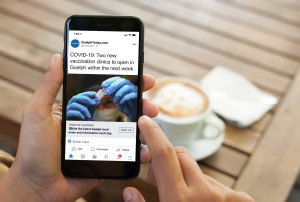
Social anxiety disorder is a severe, constant fear of being judged and watched by others. The fear will affect school, work, and even other daily activities. It’s normal to be feeling nervous in some social situations. For instance, you give a presentation or go on a date; these may cause a feeling of butterflies in the stomach.
In social anxiety disorder also called social phobia, daily interactions may cause the following:
- Significant anxiety
- Self-consciousness
- Embarrassment
These are the culprits that fear you being judged or scrutinized negatively by others. Social anxiety disorder causes fear and anxiety that leads to avoidance that disrupts anyone’s life, which the need of social anxiety psychologist could help with the treatment. Severe stress may affect relationships, work, daily routines, school, and other activities.
Social anxiety disorder
Social anxiety disorder can be an established mental health condition. But, taking medications and learning coping skills in psychotherapy helps gain confidence and enhances the ability to interact with others.
Social phobia psychologist
The therapist works with the patient or person to identify the fearful thoughts experiencing anxiety-provoking social situations and some of the general benefits of the social interactions that may trigger those thoughts.
The treatment
Treatment will depend on how much social phobia or social anxiety disorder affects the ability to function in daily life. There is the most common treatment for this mental health condition, include:

- Psychotherapy or talk therapy or psychological counseling
- Medications
- Or can be both
Psychotherapy
Psychotherapy will improve the symptoms in most people with social phobia. In therapy, you will learn how to change and recognize negative thoughts about yourself and develop skills to help gain confidence in any social situation.
CBT (Cognitive Behavioral Therapy) is the most effective psychotherapy for anxiety and is equally effective when conducted in groups or individually. An exposure-based CBT gradually works to face the situation feared the most. It helps develop confidence and can improve your coping skills to deal with anxiety-inducing situations.
You can also join role-playing or skills training to practice social skills and gain confidence and comfort relating to others. Practicing exposure to social events is particularly useful in challenging worries.
Other medications
A healthcare provider can also prescribe other medications for social anxiety symptoms, such as:
- Anti-anxiety medications. Benzodiazepines reduce anxiety levels. Although it often works quickly, it can be sedating and habit-forming, so it is prescribed for short-term use.
- Other antidepressants. You can try several different antidepressants finding the one that is most effective with the fewest side effects.
- Beta-blockers. The medication works by blocking the stimulating epinephrine effect. It reduces the following:
- Heart rate
- Blood pressure
- Pounding of the heart
- Shaking voice and limbs
If you suffer from a social anxiety disorder, then you should call for a social anxiety psychologist to help you get treated.






